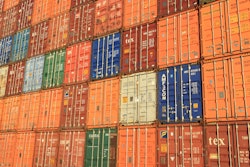
As the world faces increased economic and political turmoil, unwanted geopolitical leverage against supply chains poses a major threat to businesses and governments alike. The U.S. Secretary of Treasury, Janet Yellen, has called upon the U.S. and its allies to strengthen supply chain resilience in response to ‘unfair trade practices’ from China, with a particular focus on developing stronger supply chains for key components, such as semiconductors and electric vehicle batteries.
As a result of COVID-19, the geopolitical crisis in Ukraine, and increased reliance on China, businesses are searching for ways to stabilize the global supply chain and avoid further economic complications. The pandemic also resulted in the eye-opening realization that many countries no longer have the capacity or expertise to manufacture their own goods; making the U.S. and many other parts of the world, heavily reliant on a country that promotes corrupt trade and labor practices. While globalized specialization has historically led to more stabilized supply chains and deeper production capabilities, now is the time to rethink the model for the most critical products, components, and raw material created by nations with guiding principles that do not align with the West’s.
Supply chain redesign is critical – a sentiment which is reinforced by Yellen’s call to action. Practices such as friend-shoring (limiting supply chain networks to allies and friendly countries) can stabilize global supply chains through increased insulation from external geopolitical and economic threats.
Replacing the Dependency on China
An enormous amount of goods are manufactured in China, from electronics and fast fashion, to cleaning products and home appliances. In 2021, the United States imported a whopping $541.53 billion worth of goods from China, making the U.S. one of China’s biggest trading partners. However, the various supply issues experienced during the pandemic, from toilet paper to critical technologies, highlighted just how heavily the world relies on China for everyday items. With this immensely powerful global position, China’s monopoly on the market is not only an issue during critical times, but also informs massive areas of weakness – for both commercial business and national government security - when it comes to managing risk within our supply chain systems.
The U.S. government is increasingly prioritizing the enforcement of regulations and policies that encourage domestic investments to drive growth. On December 21, 2021, President Biden passed the Uyghur Forced Labor Prevention Act (UFLPA). This regulatory act targets forced labor within the global supply chain by preventing trade between the United States and providers in the Xinjiang Uyghur Autonomous Region (XUAR) – a region accused of criminal workplace practices such as torture, forced labor and genocide.
To further decrease reliance on China, countries can prioritize friend-shoring to redefine their position in the global supply chain. These alliances will allow countries that have lost their positioning in the global economy to utilize their unique offerings, while also giving them a newfound competitive advantage. Additionally, because the supply chain runs very deep, it is difficult to monitor every aspect of the production journey. The line between cheap products and ethical consumerism is often blurred. The shift to friend-shoring will refocus the contribution of other countries into the supply chain and decrease economic risk.
Economic restructuring
The supply chain disruptions experienced in recent years have led more businesses to explore onshoring operations, giving them more control over how and where their products are produced. Likewise, the Biden administration recently finalized a rule that increases domestic content requirements for Federal government procurements governed by the Buy American Act (BAA). This change is intended to align Federal procurement policy with the Biden Administration's recently published strategy to improve supply chain resiliency in critical sectors, such as information and communications technology (ICT), clean energy, defense, public health, agriculture and transportation. Similarly, friend-shoring offers countries the opportunity to not only re-establish their position in the global supply chain, but also strengthen relationships with nations that maintain shared values.
With friend-shoring, companies are encouraged to move their operations within allied territories. When businesses maintain close relationships with trade partners, they can not only closely monitor operations but also help utilize offerings specific to their region. In her speech, Yellen emphasized the importance of the relationship between the U.S. and South Korea-- which have long maintained a strong economic and political alliance. With a strong global reliance on exports from China such as batteries and semiconductors, the U.S. and South Korea can work together to strengthen the supply chain through tactics that seek to combat economic displacements such as increased prices. By deploying friend-shoring operations, countries can better regulate supply chains and monitor economic restructuring from a more friendly standpoint.
Strategic partnership with allies
Beyond strictly economic factors, friend–shoring also promotes consumer relationships and deepens strategic partnerships. According to a 2021 Label Insight Food Revolution Study, 94% of customers consider how transparent brands are about themselves. Transparency can be achieved through implementing allied partnerships within the supply chain that will ultimately improve customer experience.
When deploying friend-shoring operations, businesses are able to closely regulate manufacturing processes and monitor production, creating more security. As stricter regulations on supply chain standards are being enforced within the U.S., consumers are given a greater piece of mind when purchasing goods produced domestically. With a growing emphasis on ethics within the workplace, consumers are prioritizing the purchase of goods from brands that promote an ethical environment.
Furthermore, friend–shoring allows countries to grow alongside their larger counterparts and maintain more control over regional resources. Even if countries were to replicate a specific material, it is likely that the costs of production would be even higher than the industry is worth. For example, the United States can utilize its advancements in manufacturing technology with natural resources from allied nations to create high-demand products under more ethical conditions. It is no secret that countries that do not have access to advancing technology are likely to fall behind socially and economically. Because many smaller countries do not have the technological advances and funding required to manufacture goods, friend–shoring offers the potential for these countries to work with larger countries that can capitalize off their unique offerings. This creates a two-way benefit for both under-developed countries and world leaders, such as the U.S., to deepen their relationships.
Friend-shoring for a Transparent Supply Chain
Although it will be difficult to completely eradicate reliance on China, friend–shoring is a strategic approach when reevaluating supply chains. As tensions continue to rise globally, it is important for companies to properly evaluate and remain transparent as to where and how their products are manufactured.
Transparency will strengthen not only business relationships, but help promote customer relationships, as well. Countries can work together to strengthen their economic standing and promote ethical practices within the global supply chain.








